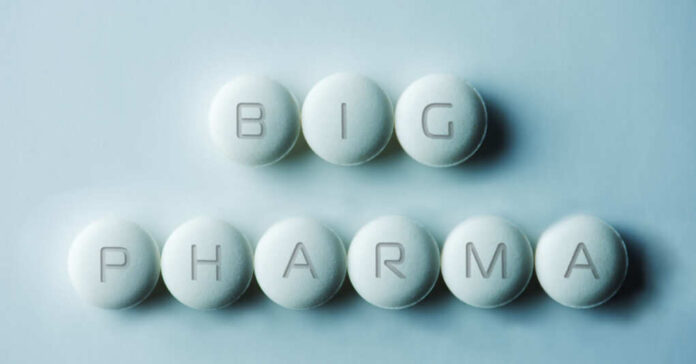
The National Institute of Health (NIH) has finally been forced to confirm what many of us have suspected for years now. Government employees at the NIH such as Dr. Anthony Fauci and Dr. Francis Collins have been collecting royalty payments from pharmaceutical companies for years. Forget about the pandemic for a second and just ponder how absolutely corrupt that is. This new release of financial information also proves beyond a shadow of a doubt that Fauci perjured himself under oath in front of Congress.
The documents on the royalty payments to NIH employees were finally obtained by Open the Books, a nonprofit government transparency organization. The documents are heavily redacted, but Open the Books has determined upon reviewing them that employees at the NIH—including Fauci and Collins—received up to $325 million in royalty payments from pharmaceutical companies between 2009 and 2021.
Open the Books has published all the documents online. The paperwork shows that there were 56,000 royalty checks sent to NIH employees during the years in question. That means these royalty checks averaged about $5,800 apiece. The royalties could be much higher or lower than that in some cases. We just don’t know yet, because the NIH redacted the actual dollar amounts that each recipient was paid.
Dr. Francis Collins was the former director of the NIH during the COVID pandemic. He’s listed as receiving 21 royalty checks from pharma companies GeneDx, Inc., IONIS, ISIS Pharmaceuticals, Inc., the Progeria Research Foundation, and Specialty Laboratories, Inc.
Dr. Anthony Fauci was the former director of the National Institute of Allergy and Infectious Diseases (NIAID). The NIAID is a subgroup of the NIH. Fauci received 37 royalty checks during the years in question, from pharma companies Ancell Corporation, Chiron Corporation, and Santa Cruz Biotechnology Inc.
Why are these people collecting royalty checks from pharma companies? Because of the huge revolving door between government health officials and employees, and the very pharma companies they are supposed to be overseeing and regulating. A government employee might go to work for a pharma company for a few months, and then their name goes on a patent for a specific drug.
Then, they go back to work at the NIH or the FDA or the CDC and give a little wink-wink to their co-workers to approve the drug they just worked on. The drug gets approved, and the employee starts collecting royalty checks on the patent.
Some cultures refer to this process as “taking obvious bribes.”
It’s also a clear conflict of interest. The system creates incentives for government officials to approve drugs that might not be as safe or effective as they make it out to be, such as a certain mRNA “vaccine” that they tried to force everyone to take a couple of years ago.
The corruption gets even worse than that, however. Some NIH employees have been receiving royalty checks from Pokrov Biologistics Plant, a Russian bio-research firm. That firm has been accused of developing biological weapons for Russia.
At least 28 Chinese pharma companies have also been paying checks to NIH employees, including the Wuhan Institute of Biological Products Co Ltd. That’s a company affiliated with the Chinese makers of Sinopharm, which is China’s main coronavirus vaccine. The Wuhan Institute of Biological Products has an office across the street from the Wuhan Institute of Virology, which Anthony Fauci sent taxpayer money to so the Chinese could tinker with bat coronaviruses.
This is systemic corruption at a level that most Americans can’t even comprehend. Plus, Fauci lied in front of the US Senate when he said he’s never taken royalty checks while working at the NIH. He took at least 37 checks, so he needs to be prosecuted for perjury at a bare minimum.











